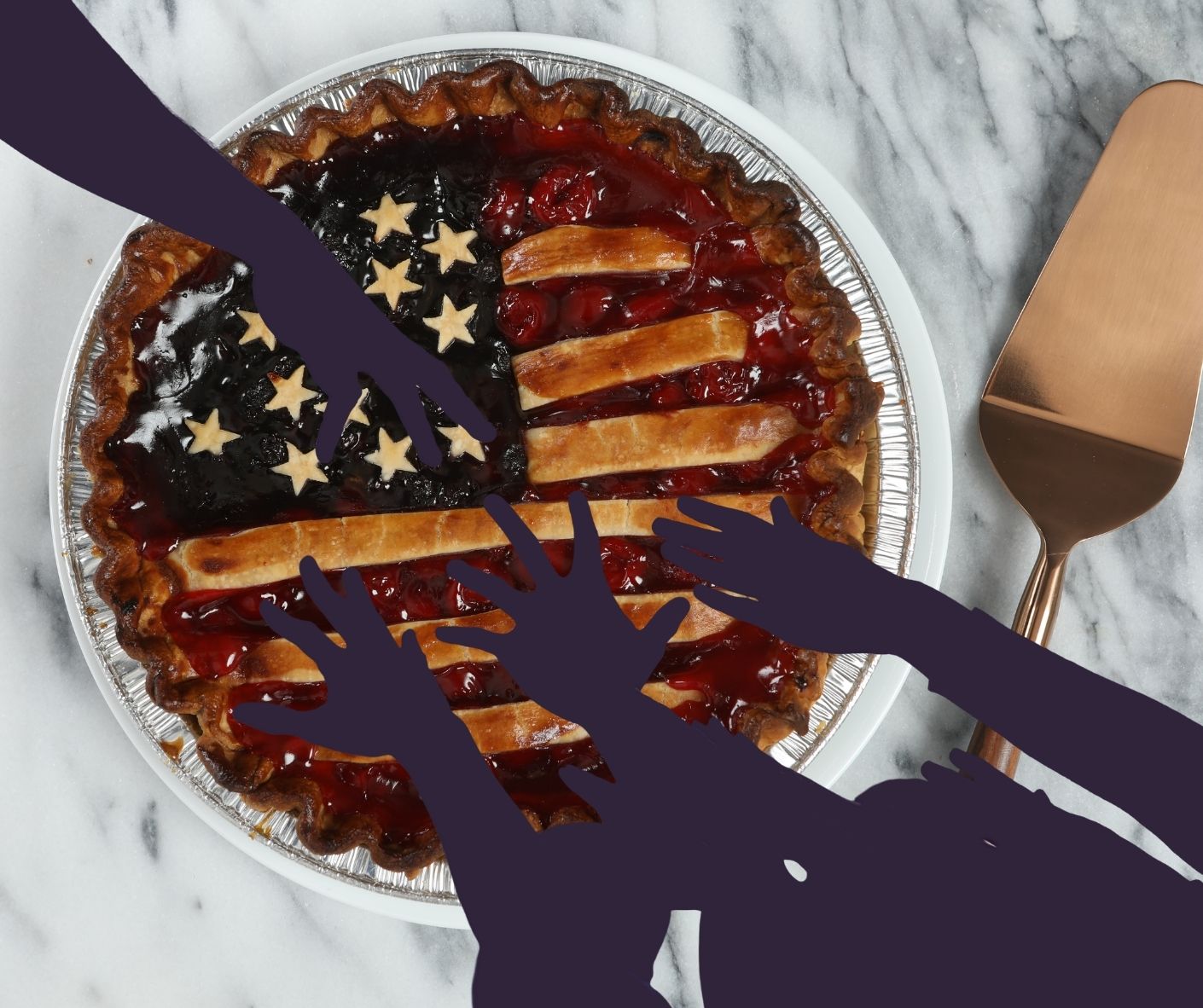We just witnessed one of the most contentious elections in the history of our country. The campaigns and the election process clearly highlighted that our country is deeply divided, split into extreme binary camps and that civil political discourse is a complete unknown to most of the population.
Joe Biden called for unity during his victory speech. There is nothing more important to the health and well-being of our republic than healing the divide that is the gaping wound at the heart of our nation. We are not Democrats versus Republicans, right-wing versus left-wing, red versus blue. We are all Americans – not some binary paradigm – who pursue life, liberty and happiness. It sounds like a slogan. Is unity really possible to achieve?
Time and time again, this country has proven that a unified nation is not only possible, but elevates the standing of all members of the republic. World War II, Kennedy’s assassination and 9/11 are three events in the past century that coalesced our country. Let’s make this another.
We must accept our interdependence. The Declaration of Independence specifically mentions the pursuit of happiness – not as an individual goal, but as the whole point of our society. Thomas Jefferson based this notion on the Aristotelian idea that “man is, by nature, a social animal” who finds meaning in relation to other humans. We must embrace empathy, compassion and civil discourse in order to shape a more perfect union. How can we achieve such a lofty goal when two sides have become so deeply entrenched in their camps, that neither truly wants to listen?
This cannot be a federal mandate. No blanket law can force the change we so desperately need. Just like all movements that have created true reform, this one must start at the grassroots level, in the most personal and intimate way – break bread together.
Food is our universal language. We don’t always have everything in common (sometimes we have little mutual interest), but we all have to eat. As humans, we all have strong cultural ties to food. If we have to eat is not in question. We must eat in order to survive. How we choose to eat and with whom, on the other hand, are where the solution lies.
The proof is in (sharing) the pudding. Science has shown us the benefits of the shared meal – as an opportunity to slow down, de-stress, catch up, share stories, teach and learn, and most importantly to bond. Many of us are literally starved for connections. Food nourishes mind, body and soul. Food shapes us, creates our identities, and even forms our relations to others.
We have countless examples of how food has broken down barriers and created space for connection. Hillary Clinton stated when she launched American Chef Corps, “Food isn’t traditionally thought of as a diplomatic tool, but I think it’s the oldest diplomatic tool. Sharing a meal can help people transcend boundaries and build bridges in a way that nothing else can.” Indeed, we can trace gastrodiplomacy all the way back to the Romans who made peace with their enemies over a shared meal. In my work with families, companies and communities, I have seen food’s ability to shatter walls and tease out conversation. If we care to heal the divide that seeks to destroy our democracy, we must reach across the aisle (or table) to find common ground.
Go ahead, open up the conversation, do not ignore topics that are difficult. The outcome hinges not on the subject matter, but on our ability to hear differing perspectives and our capacity to ask tough questions. The point of your conversation should be bridge building, so approach from a point of curiosity and respect. Stay away from personal attacks – you can respect their opinion without agreeing. Also, discuss issues, not personalities. When you talk about values and issues, you can share the experiences that motivate your position.
Teach the next generation. Children are the future and we must invest the time and effort to promote empathy, compassion, collaboration and connection in them. Kids can learn so much from family meals – teamwork in the preparation, empowerment when they voice their opinions, empathy through discussion of important issues and compassion when they encounter different points of view. Civil discourse should start at the dinner table.
This Thanksgiving, start at your own table. Then expand into new avenues – share a recipe from your meal with a neighbor or friend whose traditions are different. Talk to a stranger in the produce aisle (with your mask on and at a social distance) about an unfamiliar fruit or vegetable. Cook with people via zoom. Create a food swap in your community. Share the bounty from your garden. Visit a supermarket that carries exotic foods and learn how to use new ingredients. Food can open up new horizons and opportunities to connect with people we see as “other” or different.
Our democracy is built on the foundation that we all come from different viewpoints and ideologies. Intense political conflict is as American as apple pie. Believe it or not, it is a sign that our democracy is healthy. In the end, we must remember that no matter how much we disagree on any given issue, the shared democratic values and principles that make our system of government work are what we have in common. In the words of George W. Bush, “We have never been held together by blood or background. We are bound by things of the spirit – by shared commitments to common ideals.” Now, pass the gravy.


